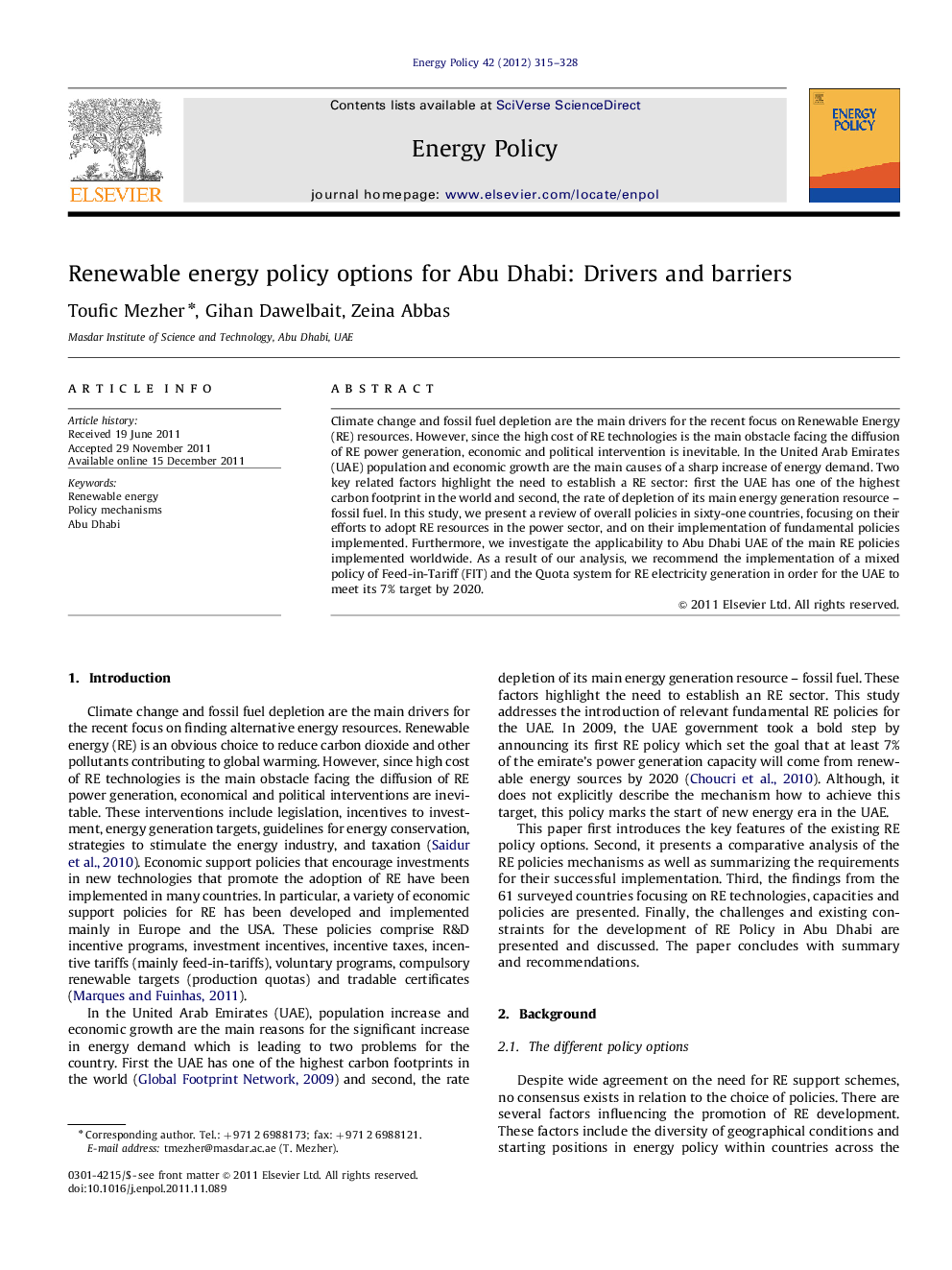| Article ID | Journal | Published Year | Pages | File Type |
|---|---|---|---|---|
| 995771 | Energy Policy | 2012 | 14 Pages |
Climate change and fossil fuel depletion are the main drivers for the recent focus on Renewable Energy (RE) resources. However, since the high cost of RE technologies is the main obstacle facing the diffusion of RE power generation, economic and political intervention is inevitable. In the United Arab Emirates (UAE) population and economic growth are the main causes of a sharp increase of energy demand. Two key related factors highlight the need to establish a RE sector: first the UAE has one of the highest carbon footprint in the world and second, the rate of depletion of its main energy generation resource – fossil fuel. In this study, we present a review of overall policies in sixty-one countries, focusing on their efforts to adopt RE resources in the power sector, and on their implementation of fundamental policies implemented. Furthermore, we investigate the applicability to Abu Dhabi UAE of the main RE policies implemented worldwide. As a result of our analysis, we recommend the implementation of a mixed policy of Feed-in-Tariff (FIT) and the Quota system for RE electricity generation in order for the UAE to meet its 7% target by 2020.
► Comprehensive review of renewable energy policy mechanisms. ► Summarizes the renewable energy policy adoptions, targets, and installed capacity in many countries. ► Gives recommendations on renewable energy policy options for Abu Dhabi, an oil rich country.
